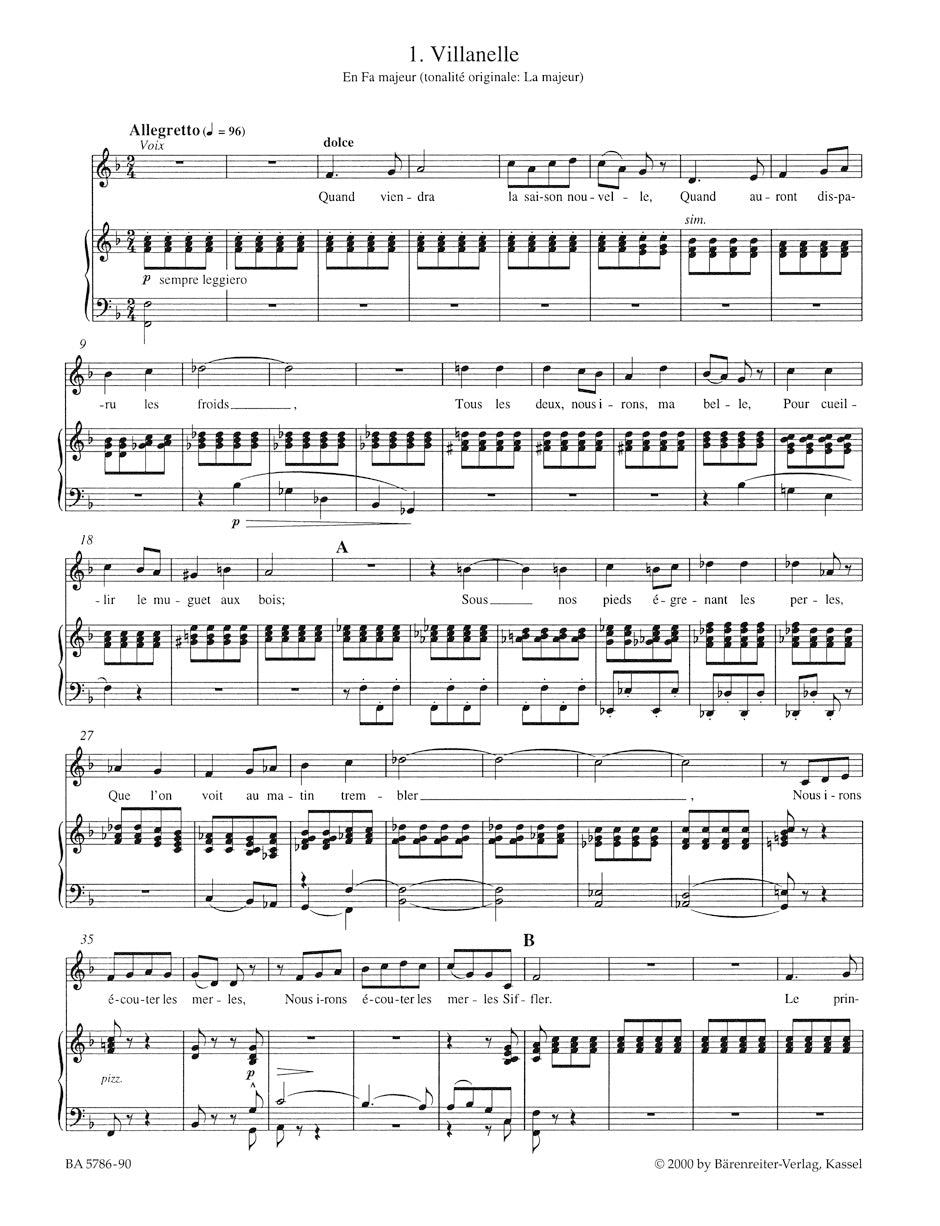


BARENREITER - 345062
Berlioz Les nuits d'été for solo voice and Orchestra op. 7 Hol. 81B -Six Songs- (Version for medium voice)
Composer: Hector Berlioz
Publisher: Bärenreiter
Instrumentation: Voice
Binding: Paperback
Dimensions: 11.8 in x 9.1 in
Pages: 27
Berlioz Les nuits d'été for solo voice and Orchestra op. 7 Hol. 81B -Six Songs- (Version for medium voice)
Juilliard Store
144 West 66th Street
New York NY 10023
United States
Choose options

Berlioz Les nuits d'été for solo voice and Orchestra op. 7 Hol. 81B -Six Songs- (Version for medium voice)
Juilliard Store
144 West 66th Street
New York NY 10023
United States
Berlioz Les nuits d'été for solo voice and Orchestra op. 7 Hol. 81B -Six Songs- (Version for medium voice)
Juilliard Store
144 West 66th Street
New York NY 10023
United States
Editor: Kemp, Ian
Arranger: Woodfull-Harris, Douglas
Orchestral scoring : voices-m/2Fl/Ob/2clarinet/2bassoon/3Hn/harp/Str
Product format: vocal score, Urtext edition
Binding: Paperback
Pages / Format: VI, 27 - 30,0 x 23,0 cm
